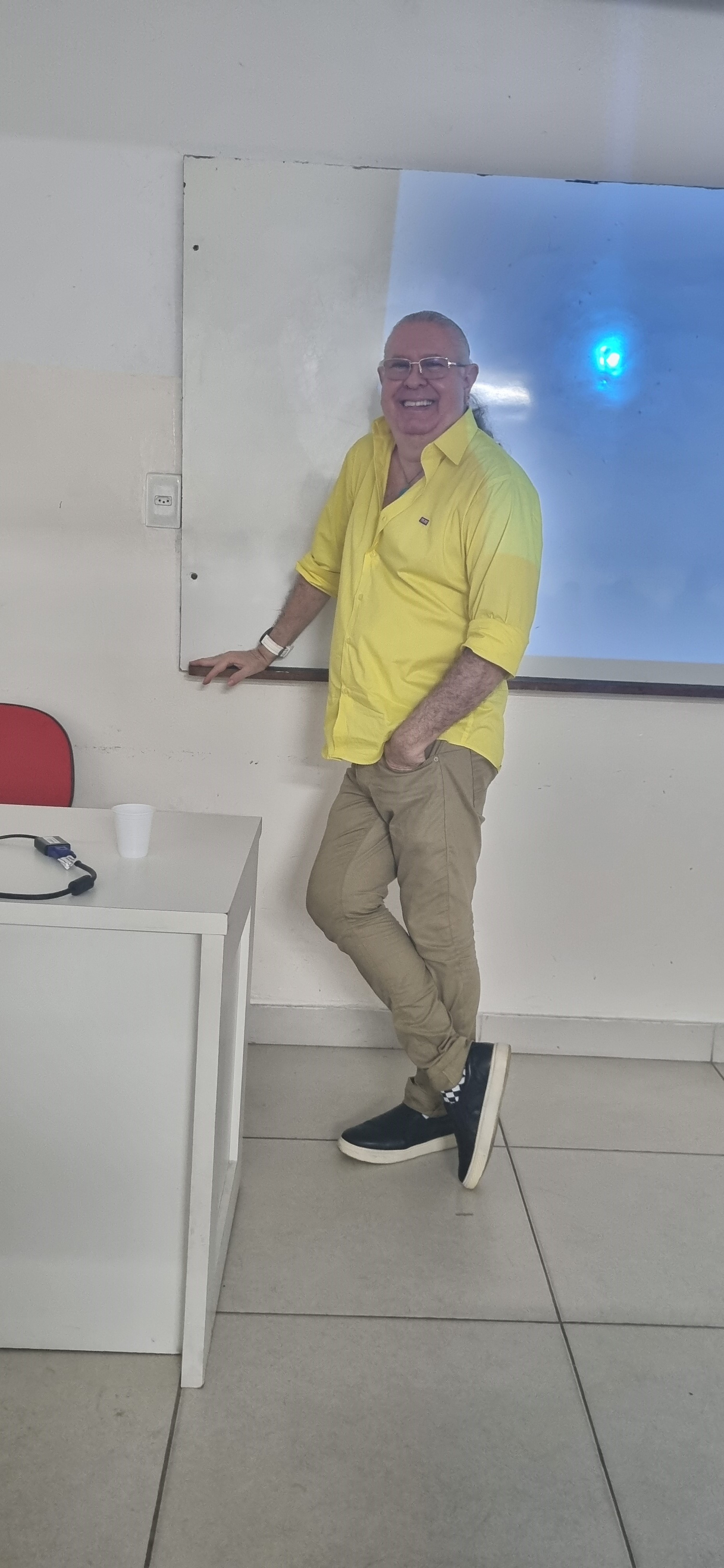PROPOSTA DE UM PROJETO DE PESQUISA NA ÁREA CLÍNICA USANDO A ABORDAGEM DE ALBERT ELLIS SOBRE CRENÇAS RACIONAIS E IRRACIONAIS.
Resumo
RESUMO
Será utilizado o pressuposto teórico da Terapia Racional-Emotivo-Comportamental (REBT - sigla em inglês), desenvolvida, em 1955, por Albert Ellis e apresentada em uma conferência proferida no Congresso da American Psychological Association - APA (GRIEGER, 1985). Baseia-se no método de tratamento dos distúrbios emocionais (chamado de ABC) e segue o modelo educacional de aprendizagem cognitiva, em lugar dos, comumente usados, modelo médico, psicodinâmico ou outros. Procura tornar as mudanças cognitivas mais duradouras através do estudo do comportamento racional-emotivo da seguinte forma: (a) de como as pessoas desenvolvem e podem superar suas próprias perturbações; (b) do detectar crenças irracionais; (c) do debater, discriminando e disputando crenças irracionais; (d) do mudar com novos efeitos ou teorias. O modelo terapêutico da REBT é ativo, diretivo e, em grande parte, educacional (ELLIS & DRYDEN, 1987; ELLIS, 1984; WALEN, DiGIUSEPPE & WESSLER, 1980). Supõe-se que a preparação emocional fará grande diferença entre as equipes de futebol, já que as mesmas encontram-se equiparadas no seu desenvolvimento técnico e tático, assim como físico. Então, a preparação mental para adolescentes que praticam futebol, poderá fazer diferença de resultados importantes dentro das competições e também das partidas. O mesmo se pode dizer com relação aos adolescentes: o equilíbrio emocional muitas vezes é fator determinante para uma jogada que levará à vitória de um atleta sobre um adversário, que mesmo melhor preparado física ou tecnicamente, soube aproveitar melhor certo momento do jogo. Uma análise do desporto mundial mostra que a evolução da preparação física, técnica, tática, e da tecnologia aplicada ao mesmo, cresceu de maneira vertiginosa, nestes últimos anos. Quase tudo é oportunizado ao atleta adolescente, para que no momento de competição o mesmo possa apresentar o seu desempenho máximo. Por conseguinte, pretendemos analisar as crenças irracionais dos adolescentes do Projeto Universidade Campeã da Faculdade de Educação Física - FEF da Universidade Federal do Amazonas - UFAM em relação a pratica desportiva do futebol, levando em conta aspectos de autoaceitação incondicional (AAI) desse grupo. Serão aplicados os Inventários de Crenças Irracionais, adaptados por Newmark et al. (1973) e outro, de Crenças Irracionais, adaptado por Hayslip et al. (1994) – ambos traduzidos por Dominguez (1996) e revalidados por Siqueira (2000). Será utilizado também o Formulário de Autoajuda da Terapia Racional-Emotivo-Comportamental, elaborado por Sichel e Ellis (1984), Escala de Crenças (JOHN M MALOUFF & NICOLA S. SCHUTTE, 1986), além de se contemplar aspectos da autoaceitação incondicional e pratica desportiva dos adolescentes e fazer uma interligação (comparação) com as teorias motivacionais de Abraham Maslow e McGregor.
Palavras-chave: Crenças Irracionais, Adolescentes, Terapia Racional-Emotivo-Comportamental, Autoaceitação Incondicional, Motivação.
ABSTRACT
The theoretical presupposition of the Therapy will be used Rational-Emotive-Behavior Therapy (REBT - acronym in English), developed, in 1955, by Albert Ellis and presented in a conference uttered in the Congress of American Psychological Association - APA (GRIEGER, 1985). She bases on the method of treatment of the emotional disturbances (call of ABC) and it follows the educational model of cognitive learning, instead of the, commonly used, I model doctor, psicodinâmico or other. He/she/you tries to turn the more durable cognitive changes through the study of the rational-emotional behavior in the following way: (the) of as the people they develop and they can overcome your own disturbances; (b) of detecting irrational faiths; (c) of discussing, discriminating and disputing irrational faiths; (d) of changing with new effects or theories. The therapeutic model of REBT is active, directing and, largely, educational (ELLIS & DRYDEN, 1987; ELLIS, 1984; WALEN, DiGIUSEPPE & WESSLER, 1980). it is Supposed that the emotional preparation will do great difference among the soccer teams, since the same ones are compared in your technical and tactical development, as well as physical. Then, the mental preparation for adolescents that practice soccer, he/she will inside be able to make difference of important results of the competitions and also of the departures. The same can one to say with relationship to the adolescents: the emotional balance many times it is decisive factor for a play that will take to an athlete's victory on an opponent, that same prepared best physical or technically, he/she knew how to take advantage of best certain moment of the game. An analysis of the world sport shows that the evolution of the physical preparation, technique, tactics, and of the applied technology to the same, it grew in a vertiginous way, on these last years. Almost everything is oportunizado to the adolescent athlete, so that in the moment of competition the same can present your maximum acting. Consequently, we intended to analyze the adolescents of the Project Champion University of physical education University irrational faiths - FEF of the Federal University of Amazonas - UFAM in relation to he/she practices sport of the soccer, taking in bill aspects of the unconditional solemnity-acceptance (AAI) of that group. They will be applied the Inventories of Irrational Faiths, adapted by Newmark et al. (1973) and other, of Irrational Faiths, adapted by Hayslip et al. (1994)–both translated by Dominguez (1996) and confirmed by Siqueira (2000). it will also be used the Form of solemnity-help of the Rational-emotive-Behavior Therapy, elaborated by Sichel and Ellis (1984), Scale of Faiths (JOHN M MALOUFF & NICOLA S. SCHUTTE. 1986), besides contemplating aspects of the unconditional solemnity-acceptance and he/she practices sport of the adolescents and using the theories of Abraham Maslow and McGregor to understanding the motivation process.
Keywords: Irrational faiths, Adolescents, Rational-Emotive-Behavior Therapy, Unconditional Solemnity-acceptance, Motivation.
Downloads




